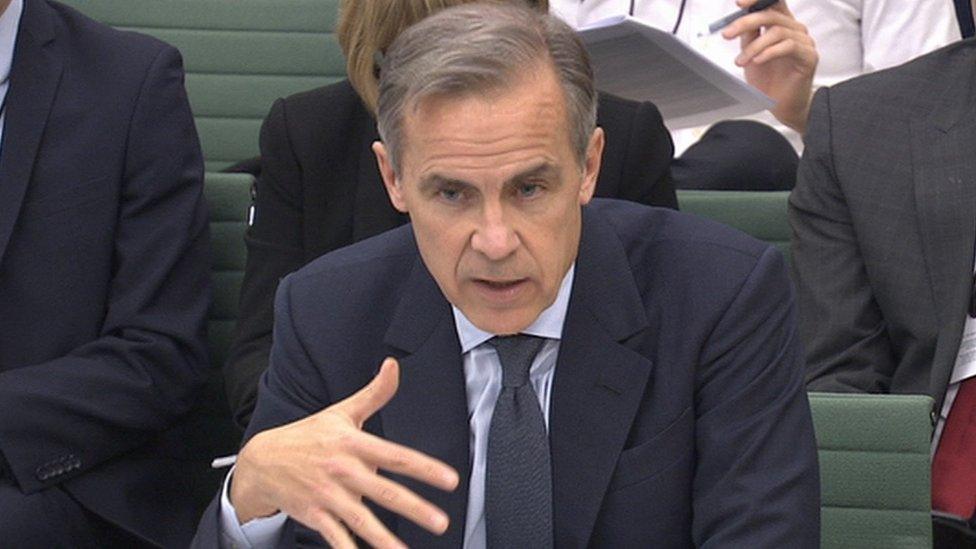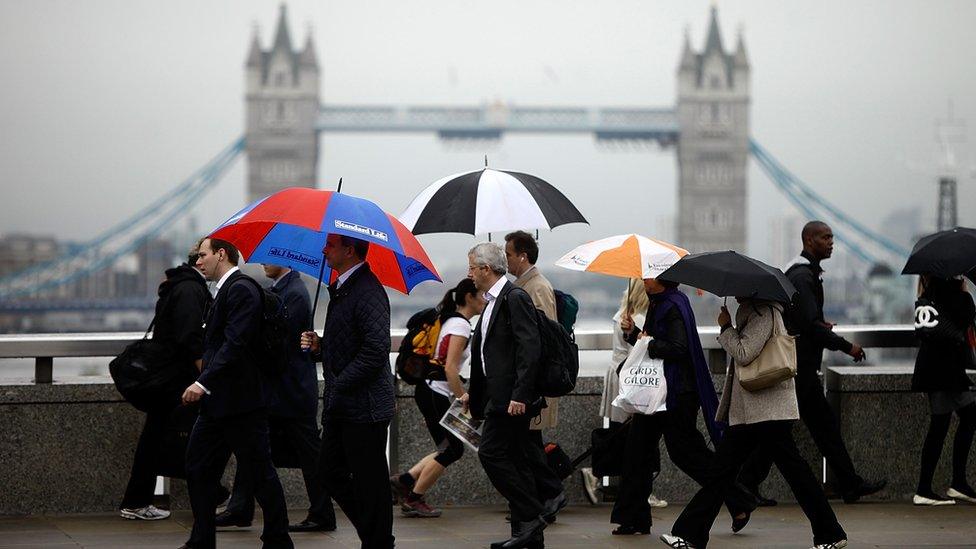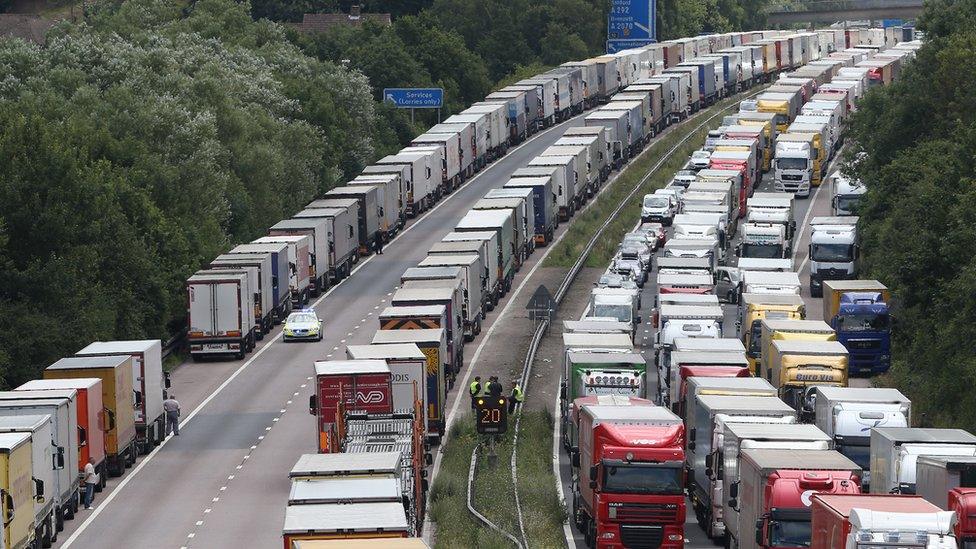Mervyn King: Brexit deal like Nazi appeasement
- Published

Former Bank of England governor Mervyn King has likened Theresa May's Brexit deal to the appeasement of the Nazis in the 1930s.
The Brexit supporter wrote a Bloomberg article, external calling for the deal to be abandoned.
Earlier, Bank of England governor Mark Carney warned food prices could rise between 5% and 10% if there was a disorderly Brexit.
Theresa May faces deep opposition in Parliament to the proposed deal.
Lord King wrote there had been three episodes in modern history when the British political class let down the rest of the country.
'Madness'
"In the 1930s, with appeasement; in the 1970s, when the British economy was the 'sick man' of Europe and the government saw its role as managing decline; and now, in the turmoil that has followed the Brexit referendum.
"In all three cases, the conventional wisdom of the day was wrong."
He said it would be "madness" to "align the country indefinitely with laws over which it has no influence" and that a second referendum "is vital to escape from this continuing nightmare".
He also said it was "intolerable for the fifth largest economy in the world to continue indefinitely as a fiefdom", which was what, he said the Brexit deal offered.
Lord King has previously criticised the government over stockpiling vital supplies in the event of a no-deal Brexit, saying it weakened the UK's negotiating position.
But earlier, Mr Carney told MPs that in the most "extreme" case of a disorderly Brexit, food prices would rise by 10%, but in a less severe scenario the increase would be about 6%.
The price rises would come partly from a fall in the value of the pound, partly from any tariffs imposed and partly from increased costs at the border as imports are checked.
Mr Carney told MPs on the Treasury Committee: "In the most extreme scenario, your shopping bill goes up 10%."
'Not ready' for WTO
In his Bloomberg article, Lord King said government preparations for Brexit based on trade under WTO terms should have started in 2016 immediately after the referendum, "as I said at the time".
Mr Carney told MPs the UK's ports were not ready for a no-deal Brexit that would see the country trade under WTO rules.
He said: "At this point in time, the ports are not ready for a move to an administered WTO relationship.
"To be absolutely clear, our agents, my colleagues, we have gone to these ports and had conversations directly with the ports in question. We have talked to the private logistics companies, so we have gathered direct information on this."
Under WTO rules, tariffs - a tax on traded goods - would be applied to UK goods. The average WTO tariff varies from product to product, from 0% on mineral fuels and pharmaceuticals, to about 20-35% on processed food and 45-50% on meat.
- Published4 December 2018

- Published28 November 2018

- Published28 November 2018

- Published28 November 2018
